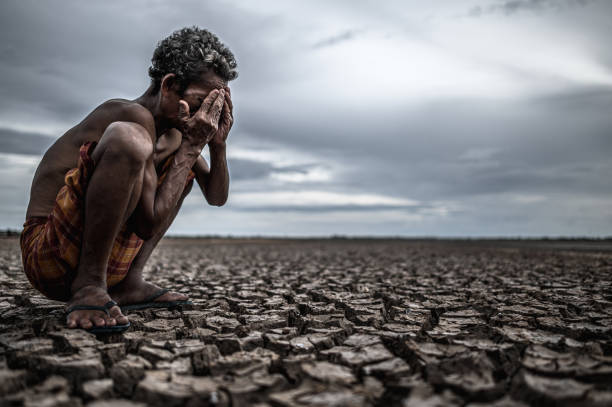Geneva/New York, June 5, 2024 – The annual average global temperature is expected to rise from 1.5 degrees C to close to 2 degrees C in the next five years, a spike that could destroy some small islands and coastal communities as well as causing more extreme and dangerous weather worldwide, the UN warned.
The World Meteorological Organization (WMO) said a new study has predicted that there is a 80 % likelihood that the average global temperature will exceed 1.5 degrees above pre-industrial levels for at least one of the next five years.
“The global mean near-surface temperature for each year between 2024 and 2028 is predicted to be between 1.1°C and 1.9°C, higher than the 1850-1900 baseline,” WMO said. The Geneva-based UN organization said it is likely (86 %) that at least one of the years between now and 2028 will set a new temperature record, beating 2023 which is currently the warmest year.
WMO said also that there a 47 % likelihood that the average global temperature over the entire 2024-2028 period will exceed 1.5 degrees C above the pre-industrial era. The goal of maintaining annual global temperature at 1.5 degrees was set in the Paris Agreement on climate change in 2015, which referred to long-term temperature increases over decades, not over one to five years.
WMO published its Global Annual to Decadal Update to coincide with an address on climate action delivered by UN Secretary-General Antonio Guterres at the American Museum of Natural History titled a Moment of Truth.
“The difference between 1.5 and 2 degrees could be the difference between extinction and survival for some small island states and coastal communities. The difference between minimizing climate chaos or crossing dangerous tipping points,” Guterres said.
He pointed out that scientists had alerted of consequences following higher temperatures: the collapse of the Greenland Ice Sheet and the West Antarctic Ice Sheet with catastrophic sea level rise; destruction of tropical coral reef systems and the livelihoods of 300 million people; collapse of the Labrador Sea Current that would further disrupt weather patterns in Europe; and widespread permafrost melt that would release devastating levels of methane, one of the most potent heat-trapping gasses.
Government leaders must work in solidarity to fight climate change – Guterres urges leaders of the world’s 20 richest countries, G20, to work in solidarity to accelerate a” just global energy transition” aligned with the 1.5 degrees limit, which call for them to align their national climate action plans, their energystrategies, and their plans for fossil fuel production and consumption, with a 1.5degrees future.
“It means the G20 pledging to reallocate subsidies from fossil fuels to renewables, storage, and grid modernization, and support for vulnerable communities,” he said. It means the G7 and other OECD countries committing: to end coal by 2030; and to create fossil-fuel free power systems, and reduce oil and gas supply and demand by sixty percent – by 2035. It means all countries ending new coal projects – now. Particularly in Asia, home to ninety-five percent of planned new coal power capacity. It means non-OECD countries creating climate action plans that put them on a path to ending coal power by 2040.”
“The United Nations is mobilizing our entire system to help developing countries to achieve this through our Climate Promise initiative,” Guterres said.
WMO: World must urgently cut emissions or pay heavy price – Ko Barrett, the WMO Deputy Secretary-General, said, “Behind these statistics lies the bleak reality that we are way off track to meet the goals set in the Paris Agreement. We must urgently do more to cut greenhouse gas emissions, or we will pay an increasingly heavy price in terms of trillions of dollars in economic costs, millions of lives affected by more extreme weather and extensive damage to the environment and biodiversity.”
“WMO is sounding the alarm that we will be exceeding the 1.5°C level on a temporary basis with increasing frequency. We have already temporarily surpassed this level for individual months – and indeed as averaged over the most recent 12-month period. However, it is important to stress that temporary breaches do not mean that the 1.5 °C goal is permanently lost because this refers to long-term warming over decades.” (By J. Tuyet Nguyen)
United Nations journalists – United Nations journalists – United Nations journalists
United Nations News – United Nations News – UN Correspondents Association – UNCA Awards

